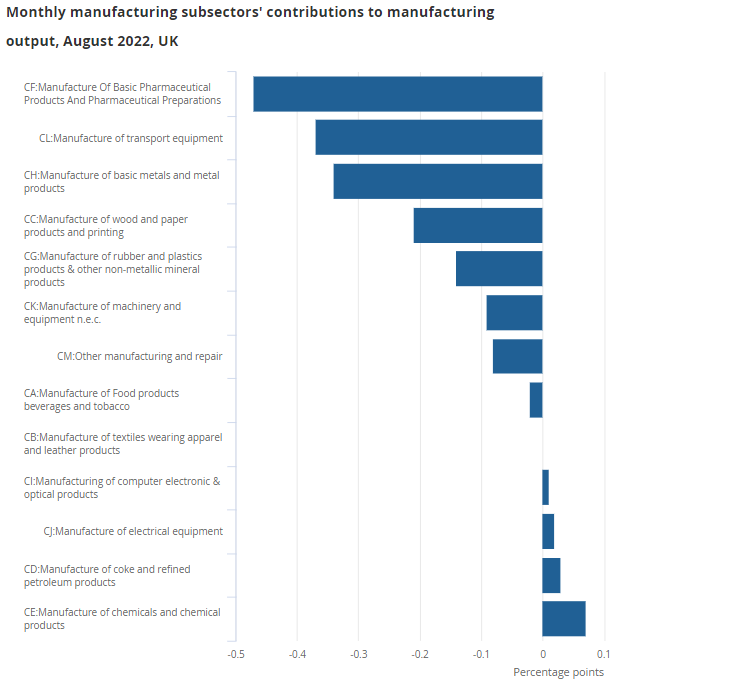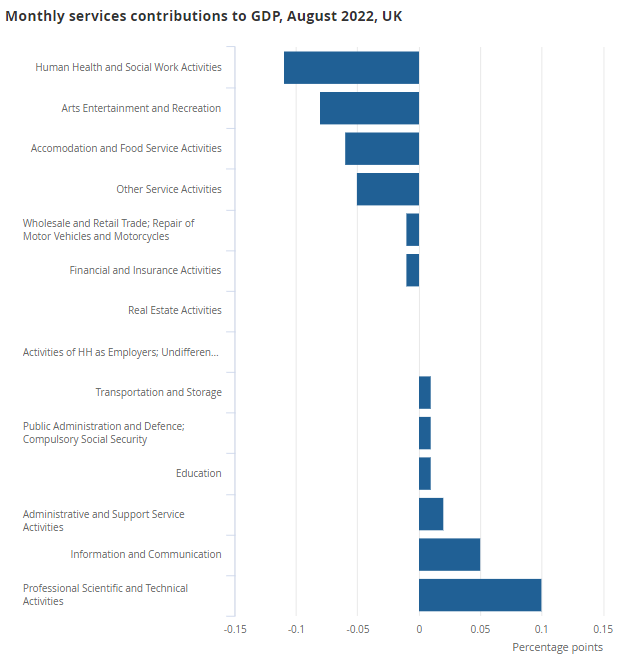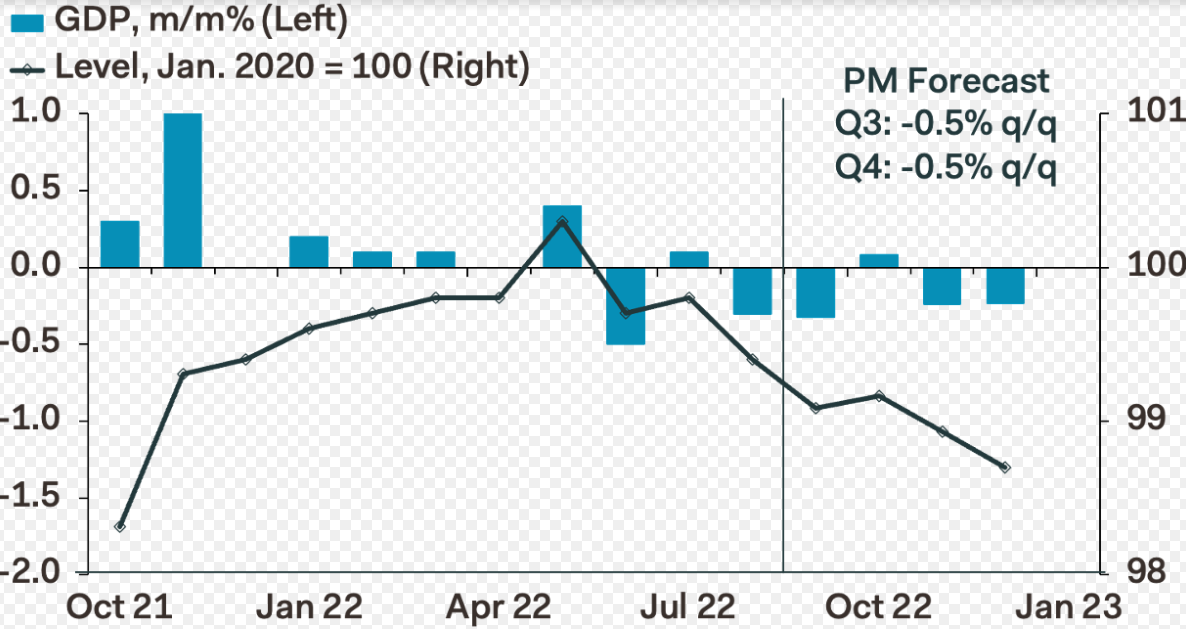UK Economy Heads for Third Quarter Contraction after Manufacturing Decline
- Written by: James Skinner
"August’s drop in GDP likely marks the start of a downward trend that will continue deep into next year," - Pantheon Macroeconomics

Image © Adobe Stock
The UK economy contracted at its fastest pace since April in a poorer-than-expected August performance that took economists by surprise and which indicates that growth will likely be negative for the third quarter overall.
UK GDP fell by 0.3% in August, according to Office for National Statistics (ONS) data out on Wednesday, when some measures of consensus among economists had suggested it would likely be unchanged at 0%.
This was mimicked by the quarter-on-quarter growth rate, which came in at -0.3% for the three months to the end of August and leaves the economy with a steep uphill climb ahead to avoid an outright contraction for the third quarter.
Industrial production was the biggest drag after falling 1.8% owing to a 1.6% fall in output from the manufacturing industry where manufacturing of pharmaceutical products and transport equipment fell sharply.
This was augmented by declines in output from the energy, mining and quarrying segments of the industrial sector where production of metals, crude oil and natural gas also declined, although with the latter being partly as a result of planned maintenance activities.
 Source: Office for National Statistics.
Source: Office for National Statistics.
"Within manufacture of transport equipment, the manufacture of motor vehicles, trailers and semi-trailers accounts for most of the fall, decreasing by 6.2%. Manufacture of basic iron and steel was the main driver within manufacture of basic metals and metal products, falling by 16.9% on the month," the ONS said.
Meanwhile, the UK's breadwinning services sector also contracted in August when output fell by 0.1% following a 0.3% increase in July owing to declines in output from industries concerning human health and social work activities, arts, entertainment and recreation.
The largest falls were in arts, entertainment and recreation output while consumer-facing services output was down 1.8% on the month.
"This fall was almost entirely driven by sports activities and amusement and recreation activities, which fell by 9.4% in the month after a strong July, which included a number of large sporting events," the ONS said.
Meanwhile, the construction sector bucked the UK economic trend when growing by 0.4%, adding to a 0.1% increase from July, with all of that attributable to new project work as opposed to maintenance or repair activities.
 Source: Office for National Statistics.
Source: Office for National Statistics.
"The 0.4% growth in construction output in August 2022 represents an increase of £60 million in monetary terms compared with July 2022, with 3 out of the 9 sectors seeing an increase on the month," the Office for National Statistics said.
August's data suggests the recession that was warned of by the Bank of England in its August Monetary Policy Report may have come early given the bank had expected growth to turn negative in the final quarter and to remain negative for up to five quarters.
BoE forecasts suggested the anticipated downturn could run almost as deep and for as long as the recessions seen in the 1980s and early 1990s.
"August’s drop in GDP likely marks the start of a downward trend that will continue deep into next year," says Samuel Tombs, chief UK economist at Pantheon Macroeconomics.
"GDP likely will continue to decline over the coming months, now that around one-third of households no longer have meaningful savings left, and the 30% that have a mortgage reduce expenditure in response to, or in advance of, a sharp rise in their monthly loan payments. In addition, the deterioration in businesses’ borrowing costs is consistent on past form with both investment and employment falling next year," Tombs said on Wednesday.
 Source: Pantheon Macroeconomics.
Source: Pantheon Macroeconomics.



